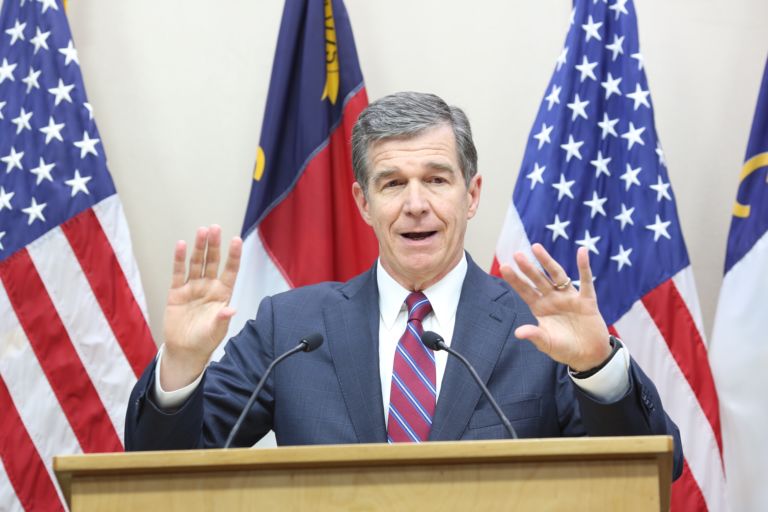North Carolina Republican lawmakers recently introduced legislation ( HB 823, SB 406) to significantly expand the Opportunity Scholarship Program (OSP). The House approved HB 823 while similar legislation in the Senate is still under consideration.
OSP is a taxpayer-financed voucher program which provides eligible recipients a voucher of up to approximately $6,500 to attend the private school of their choice. In 2022-23 approximately $133 million dollars were awarded in scholarships to about 25,500 recipients.
The new legislation would change the existing program in two fundamental ways. First it would require 50 percent of all funds to be reserved for students from families with an income level not more than the amount required to qualify for the federal free and reduced-price lunch program.
Second, the legislation would also remove the program’s income eligibility requirements and replace them with a system that awards scholarships based on a sliding scale. Household income would still determine the size of the scholarship awarded, and the plan would ensure that needy families would continue to receive the largest scholarships. All families, however, would now be eligible to qualify for a scholarship.
How do North Carolina voters feel about these changes?
The May 2023 Civitas Poll (see full poll results here; and crosstabs here) asked respondents two questions to help shed some light on this topic. The first question asked voters if they support or oppose the concept of a voucher system.
The poll found a little over half of respondents (51 percent) support the idea of school vouchers, while about 31 percent of respondents oppose the idea. Ten percent of respondents neither supported or opposed vouchers and 8 percent of respondents were unsure.
So, who supports vouchers?
Republicans and Independents were the strongest supporters of vouchers with support/oppose margins of 69%/14% and 49%/35% respectively. Overall, Democrats oppose vouchers by the using the same ratio by a margin of 37%/44%.
Surprisingly, support for the idea of vouchers was highest in rural areas (54%/28%) and weakest in urban areas (45%/35%). Suburban respondents also had strong support, but their support/oppose ratio of 50%/33% fell slightly behind rural areas.
When divided by race, over half of all whites (53 percent) express support for the idea of a voucher system along with almost half (48 percent) of all blacks.
In addition, the Civitas Poll also asked respondents whether they support or oppose efforts to expand the Opportunity Scholarship Program.
The poll found that approximately 52 percent of respondents support the proposed expansion, 22 percent oppose it, 15 percent neither support or oppose it and about 11 percent are unsure of their response.
Support for the proposed expansion is across the spectrum and runs deep. Sixty Percent of Republicans support the proposed changes, along with almost half (48 percent) of Democrats and Independents.
Divided by ideology, 56 percent of conservative and 55 percent of moderates support OSP expansion. Only 43 percent of self-described liberals support expansion.
Support for OSP expansion is highest among Hispanics or Latinos (64 percent), followed by blacks (55 percent) and Whites (51 percent).
Again, surprisingly, the strongest support for OSP expansion was in rural areas where 54 percent of respondents support OSP expansion. Urban areas (53 percent) had the next highest levels of support, followed by Suburban areas at 49 percent.
Of course, people do oppose OSP expansion. Opposition is focused mostly among Democrats (32 percent) and Independents (22 percent). Only 12 percent of Republicans oppose the expansion.
What does it all mean? If support for vouchers polls above 50 percent, it’s time to stop calling vouchers a dirty word. Stories about expansion proposals should also drop the word “controversial.” That’s a hard argument to make when half the public supports something.
Lawmakers are on solid ground in considering expanded educational opportunities and they should give these findings the close consideration they deserve.


